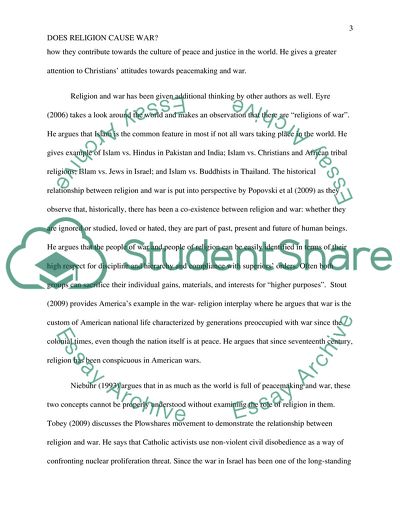Cite this document
(Does Religion Cause War Research Paper Example | Topics and Well Written Essays - 2500 words, n.d.)
Does Religion Cause War Research Paper Example | Topics and Well Written Essays - 2500 words. Retrieved from https://studentshare.org/religion-and-theology/1772218-does-religion-cause-war
Does Religion Cause War Research Paper Example | Topics and Well Written Essays - 2500 words. Retrieved from https://studentshare.org/religion-and-theology/1772218-does-religion-cause-war
(Does Religion Cause War Research Paper Example | Topics and Well Written Essays - 2500 Words)
Does Religion Cause War Research Paper Example | Topics and Well Written Essays - 2500 Words. https://studentshare.org/religion-and-theology/1772218-does-religion-cause-war.
Does Religion Cause War Research Paper Example | Topics and Well Written Essays - 2500 Words. https://studentshare.org/religion-and-theology/1772218-does-religion-cause-war.
“Does Religion Cause War Research Paper Example | Topics and Well Written Essays - 2500 Words”, n.d. https://studentshare.org/religion-and-theology/1772218-does-religion-cause-war.


